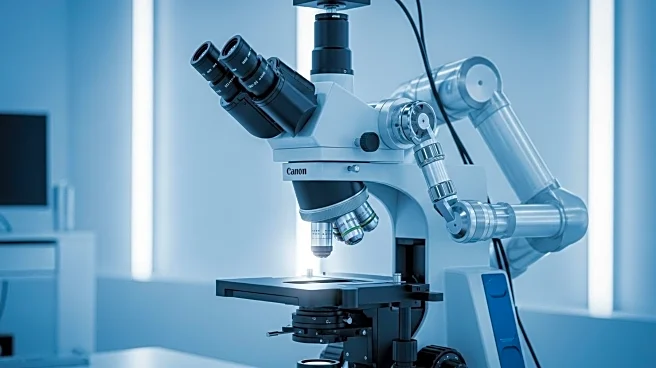What's Happening?
Thermo Fisher Scientific has introduced automated microscopy technology to address the skills gap in advanced materials characterization. As materials like multiphase alloys and nanostructured coatings become more complex, the need for high-resolution analysis grows. However, the industry faces a shortage of skilled workers capable of operating sophisticated equipment like focused ion beam (FIB) and scanning electron microscopes (SEM). The Scios 3 FIB-SEM system, developed by Thermo Scientific, integrates automation features to simplify the learning curve, making it accessible to users with limited microscopy experience. This system automates key workflows, reducing variability and maintaining productivity, even with less experienced operators.
Why It's Important?
The introduction of automated microscopy technology is crucial for industries such as automotive, aerospace, and additive manufacturing, where advanced materials are increasingly used. By bridging the skills gap, this technology ensures consistent and precise materials analysis, which is vital for quality control and failure analysis. The automation reduces the reliance on highly skilled operators, potentially lowering costs and increasing efficiency. This development could lead to broader adoption of advanced materials, driving innovation and competitiveness in manufacturing sectors.
What's Next?
The adoption of automated microscopy systems like the Scios 3 FIB-SEM is expected to grow, as industries seek solutions to overcome skills shortages. Companies may invest in training programs to further integrate these technologies into their workflows. Additionally, ongoing advancements in automation could lead to more sophisticated systems, further simplifying complex processes and expanding their applications.









